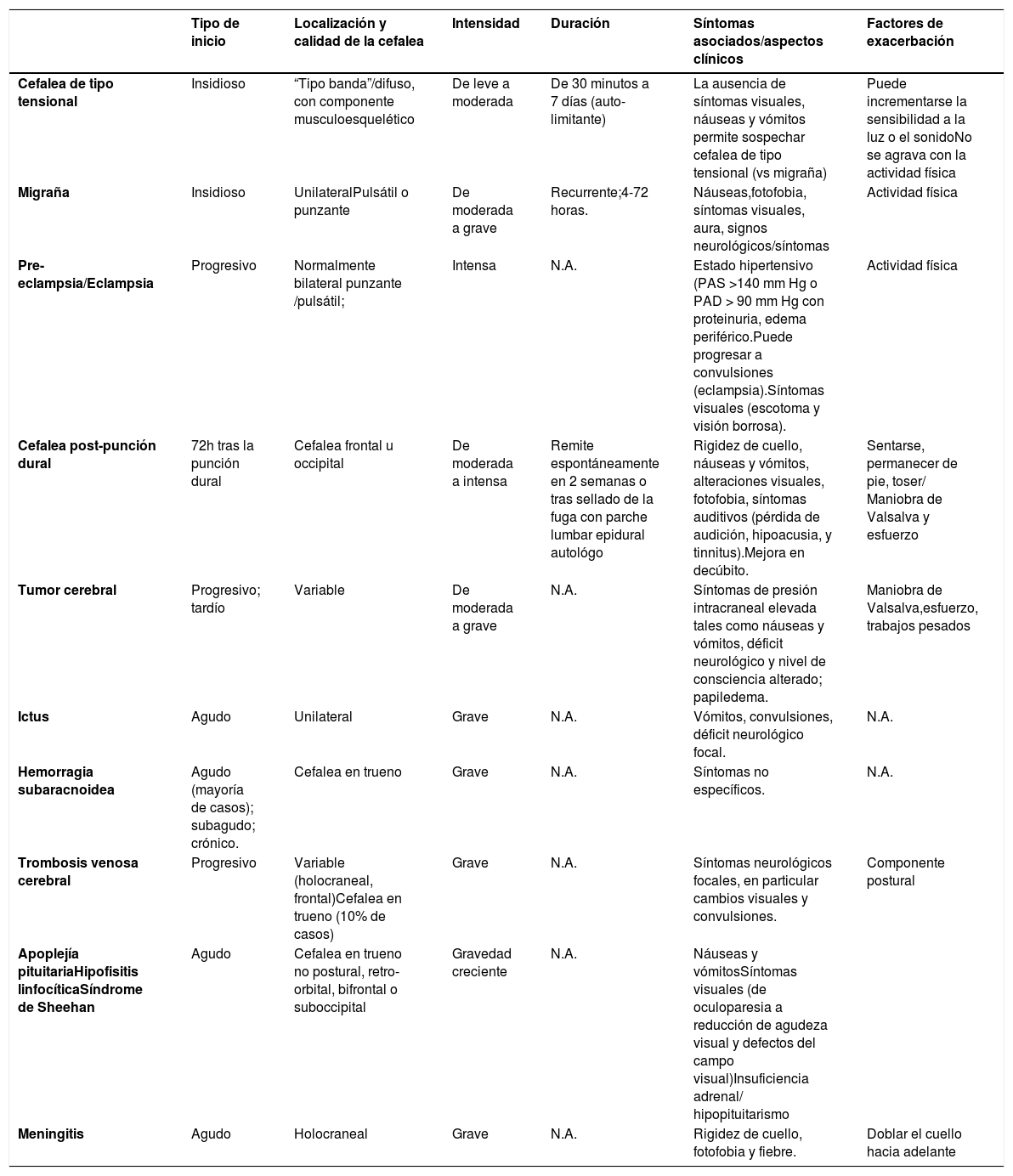La analgesia epidural está considerada la primera opción analgésica durante el parto. La cefalea pospunción lumbar (CPPL) está considerada una complicación potencial de esta técnica analgésica, siendo una hipótesis frecuente para cualquier cefalea que se produce tras el parto. Es fundamental que los anestesistas y obstetras estén familiarizados con otros posibles diagnósticos diferenciales de cefalea posparto (CPP).
Caso clínicoMujer de 37 años que se presentó tras el parto, con cefalea pulsátil occipital intensa asociada a radiación hacia el cuello, náuseas y vómitos, hemodinámicamente estable, y con exploración física neurológica normal. Se encontraron alteraciones en los niveles de la hormona tiroidea. Los resultados de la TC fueron sugerentes de apoplejía hipofisaria.
DiscusiónExisten muchos diagnósticos diferenciales para la CPP, y a menudo algunos no se consideran, como en el caso de la apoplejía hipofisaria. Es fundamental diferenciar los signos y los síntomas de cada diagnóstico, ya que muchos de ellos pueden solaparse.
ConclusiónNo todas las cefaleas posparto son CPPL, y la primera sospecha diagnóstica puede no ser siempre la correcta.
Epidural analgesia is considered the preferred analgesic choice during labour. Post dural puncture headache (PDPH) is considered a potential complication of this analgesic technique and is a frequently hypothesis for any headache occurring after delivery. It is essential that anaesthetists and obstetricians are familiar with other possible differential diagnosis for postpartum headache (PPH).
Case description37-year-old female presented after delivery with intense occipital pulsatile headache associated with neck radiation, nausea and vomiting, hemodynamically stable and normal neurologic physical examination. Abnormalities in thyroid hormone levels were found. CT-scan findings suggested pituitary apoplexy.
DiscussionThere are many differential diagnoses for PPH and some are rarely considered, such as pituitary apoplexy. It is essential to differentiate signs and symptoms of each diagnosis, since many of them overlap.
ConclusionNot all postpartum headaches are PDPH and the first suspected diagnosis may not always be accurate.










